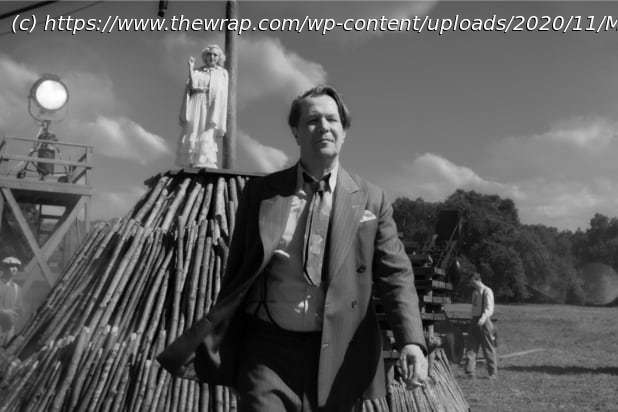This look at writer Herman Mankiewicz’s motivations examines the dividing line between studio politics and politics-politics
“You cannot capture a man’s entire life in two hours. All you can hope is to leave the impression of one.” That’s a valuable piece of screenwriting advice offered up by legendary movie writer Herman J. Mankiewicz in “Mank,” but it’s also the film lowering the bar for itself – impressions of people and incidents are all that this immaculately produced and beautifully acted film ultimately has to offer. In telling the story of the creation of the original screenplay for what would become “Citizen Kane,” one of the true masterpieces of American cinema, director David Fincher (working from a screenplay by his late father Jack Fincher) frames the film as the story of a career-dead, alcoholic Mankiewicz (Gary Oldman) drumming out one final script partially to fulfill a contract with Orson Welles’ Mercury Theatre but mainly to settle an old grudge against former benefactor William Randolph Hearst. From its old-school scrolling opening credits to its voluptous black-and-white cinematography (by Erik Messerschmidt, who collaborated with Fincher on the Netflix series “Mindhunter”), “Mank” will be catnip for devotees of Turner Classic Movies, a network that currently employs Herman’s grandson Ben (full disclosure: He’s a friend and colleague) as an on-air host. Watch Video: Gary Oldman Charms His Way Through 1930s Hollywood in David Fincher’s ‘Mank’ Trailer But starry-eyed fans of American cinema’s golden age who shunned “Scotty and the Secret History of Hollywood” because they didn’t want to know about the sex lives of their favorite leading men and ladies, and who avoided “Trumbo” because they didn’t want to be reminded that the studios aided and abetted the Blacklist, will have to deal with the Finchers’ evocation of the deeply reactionary politics of the moguls that created the movie business. Like “Kane” itself, “Mank” jumps around in time and space, from the Vacaville bungalow where Mank, out of favor with the studios, pounded out the “Kane” script with the help of hard-working assistant Mrs. Alexander (Lily Collins), back to the 1930s, when he ruled a roost of legendary Paramount writers (including George S. Kaufman, S.J.
Домой
United States
USA — Cinema ‘Mank’ Film Review: David Fincher Sumptuously Spins the ‘Citizen Kane’ Origin Story






